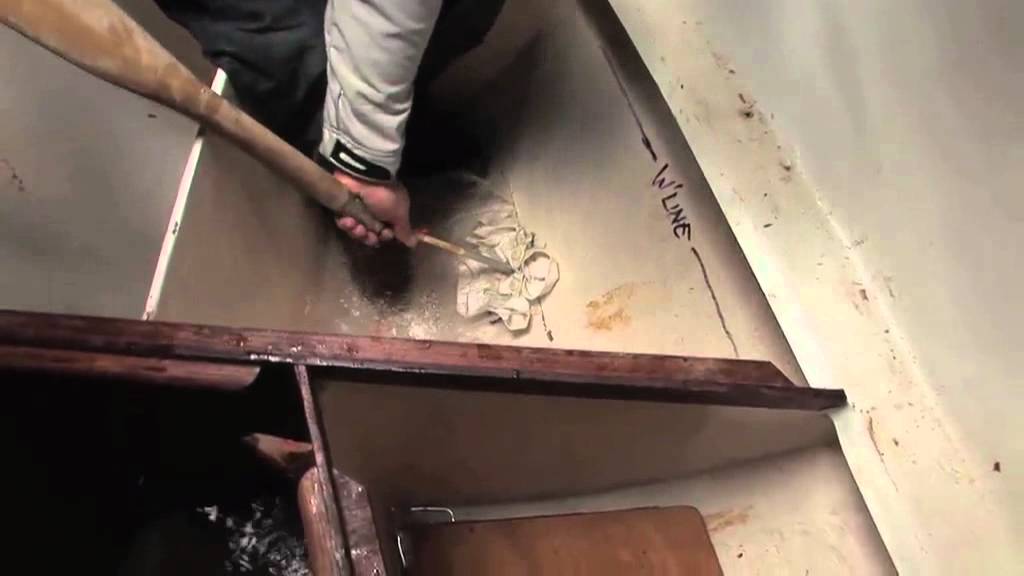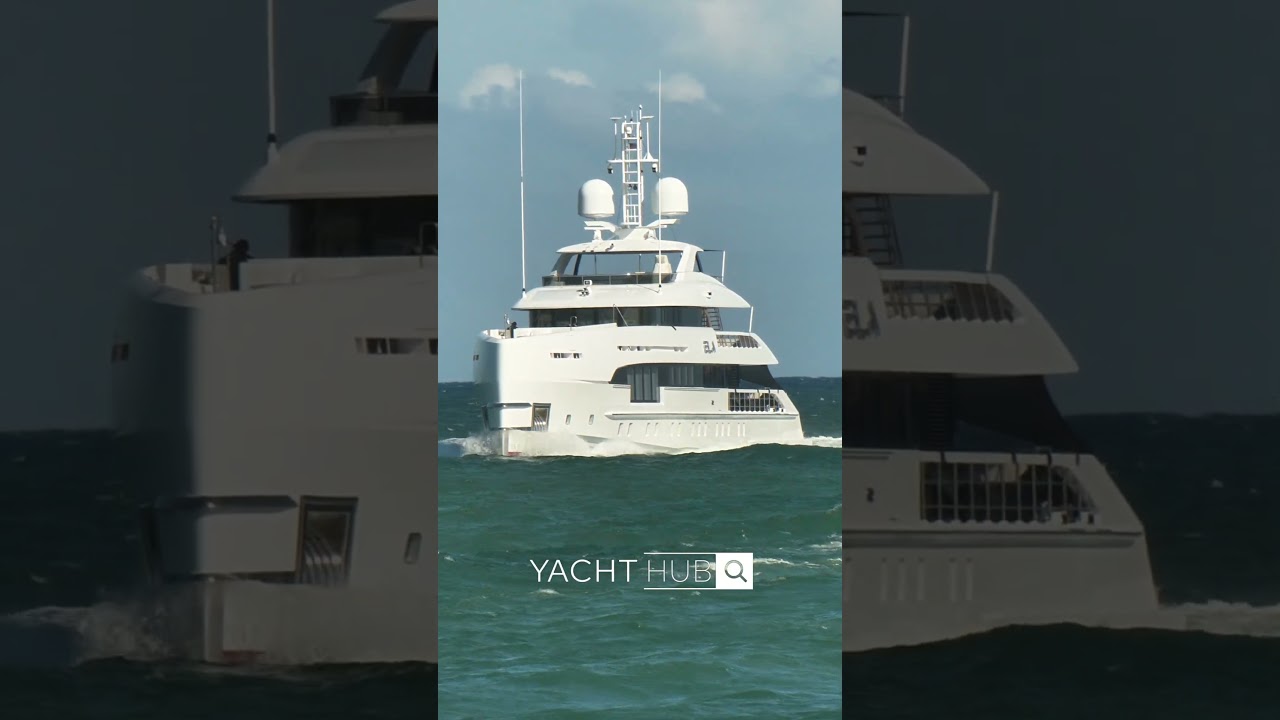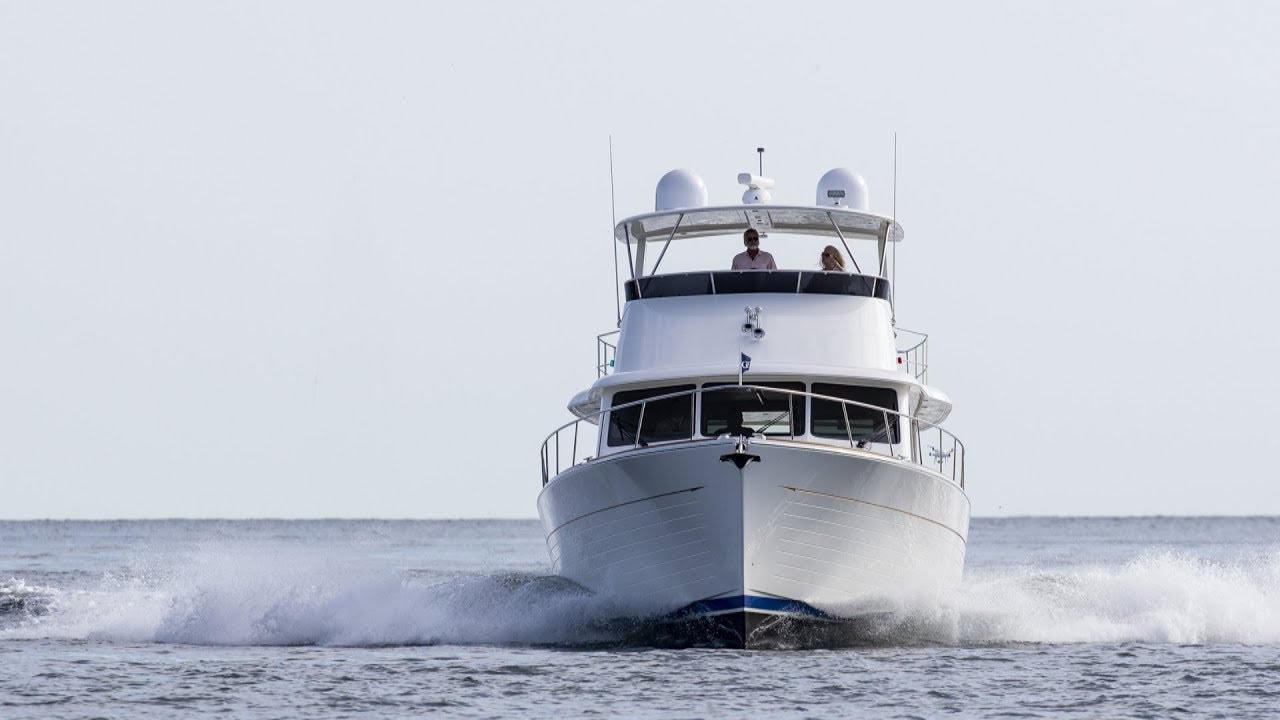Echipajul Crash Test de la Yachting Monthly face o gaură în barca sa, o pune în apă și încearcă diferite metode de a preveni inundarea apei. Este posibil să oprești barca să se scufunde? Cumpărați aplicația Crash Test Boat https://itunes.apple.com/gb/app/yachting-monthly-crash-test/id487217745?mt=8
source
Yachting Monthly’s Crash Test Boat are gaura partea 2

28 thoughts on “Yachting Monthly’s Crash Test Boat are gaura partea 2”
Comments are closed.




Although the tarp worked OK in the yard with no forward motion, it would be very different when trying to sail back to the dock against waves and current. Those little lines would easily tear one corner off the tarp, or stretch and part. Also with forward motion the front edge of the tarp would catch water and peel itself away from the hull. Perhaps it would work better if the tarp were big enough to keep the leading edge completely out of the water, in which case only two low tension lines on the back corners would be needed to keep the tarp centered. I like the first effort with the external plywood and soundproofing patch pulled in with a line, but it would take some time to fabricate and it wouldn't work on a very curved surface. There's a lot to be said for the versatility and simplicity of a cushion.
Never Forget your Pillows!
Cordless drill => pre-drill the plywood and hull, screw down the plywood.
a rubber toilet bowl plunger wedged against the inside of the haul would probably work very well if the hole was small. if anyone is familiar with a load lock, that's an expandable rod used in the trucking industry to hold loads in place in the trailer. So a toilet bowl plunger head with a load lock rod to hold the plunger head in place. most definitely do it. in fact that's such an awesome idea I'm going to send it into the u.s. patent office.
thank you :-)…always feeling sorry for the boat but certainly really helpful for learning!
I wonder how well the sail and plastic sheet would have worked if the leak had been further aft abeam the keel? I think it would not seal there because a void would occur as it stretched from the bottom of the keel to the hull stopping the tight wrapping from occurring.
I think the board with a goop substance and a drill to drill some holes around the board and a screw driver would be best method. The cushion to start with to slow the inflow and give some breathing space to prepare the board etc. that goop in the container to stem the flow in the hull fitting video looked like the right stuff. We should know our boat enough to know the location of hull fittings and also be prepared to tear the stowage areas apart to gain access to areas below the water line. Great stuff to see though, great learning video. Thanks heaps. Personally I like steel hulled boats.
I could make a sexual comment about what I could shove in to stop the flow
preferably closed cell foam cushion with a cabinet door behind it, and some shoring like the oar to hold it in place
love the videos!
have you tested / modeled any of –
– how to address rudder post damage from impact
– sudden keel loss from impact
– dagger vs skeg vs partial skeg?
Rip a fender open and screw a thin plywood on top ?
What about actually showing us what he is talking about?
Your camera man would be perfectly suited to work in the audio book industry
Self adhesive waterproof flashing is what I carry. It's a 4 or 6 inch wide strip of super sticky butyl rubber. Sticks well when wet and has good strength.
I
This guy is not very good on camera it looks stressed and hot
Great
Take rubber inter tube and staple it to a piece plywood with
a hole in the middle for a piece of rope. Place over the hole from the outside
and pull on the rope and should stop the leak.
I like the hole plug device that just made the hole bigger. Like an umbrella that makes you wetter or a life jacket that drowns you. Clever stuff
Thanks- I read about fothering in a Patrick O'Brian novel and I couldn't understand exactly how they got the sail under the hull. Awesome!
These are very helpful. I wonder though, can't I just call the guy with FlexSeal? 🙂
Thank you very much for the awesome video.
use peanut butter and a book
Very good video. Thank you a lot.
Probably see why they don’t make those umbrellas any more lol
Just let enough come in until the waterline mark drops below the hole.
Crash a boat with 8 knot on a container in the ocean
What is dampcloth? … is it just a tarp? Is it more of a plastic, nylon, or ~rubbery tarp?
You guys are awesome! Thank you, so much, for doing this.
And who would make sure that their cordless drill was always fully charged because the batteries often run flat over time. Single handed you would never get a tarp over the hole in time, shoving anything through the hole and expanding it outside the boat in a pitching sea while trying to balance yourself would be sooooo bloody difficult and take far to long. Only serious contender I can think of is epoxy putty, slap a board over it and brace it somehow. What was worrying was that of all the methods they tried, none were really that successful and this was in a controlled environment, even so they looked absolutely knackers by the end. EPOXY PUTTY I think.